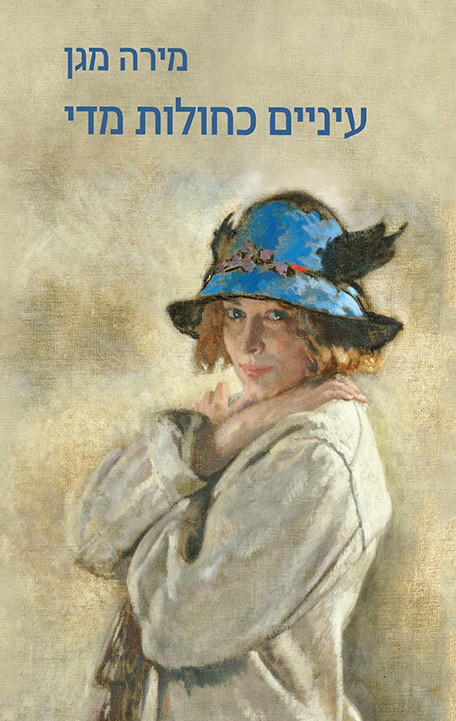
The Bluest Eyes
Hannah Yonah, an eccentric widow of 77 with flashing blue eyes, lives in an old two-storey house in Jerusalem that a wealthy real-estate shark is plotting to buy from her. Hannah’s three daughters, all unmarried career women, live in separate apartments in the same building. Yardena, a single mother, is in the hotel business; Simona is a doctor and Orna is in high-tech. There is also Johanna, Hannah’s caregiver, a migrant worker from Romania. She is afraid that Hannah’s secret double life will be discovered, for in the daytime she pretends to be a cripple in a wheelchair, but at night she dons high heels, goes out to bars with men and comes home drunk. Her desire for life and love, and her attempt to outwit the tyranny of time is shared by her daughters, and each one copes differently.
Into this world comes a young man called Rafi. He rents an apartment on the ground floor, pretending to be a poet, and succeeds in charming Hannah. But the truth is that he is a conman, part of the plot to get Hannah to sell her house for which he has been promised a large sum of money. But as in Magen’s previous novels, good fortune shines upon the characters, even the flawed ones. Rafi needs money to support his sister and her disabled child. Hanna finds true love and a real friend in Bruno, a gentle old man without family who comes to live with her, and Orna, who missed out on happiness when she was married, decides to have a child.

-
“ This book should be read in the way you drink a fine wine: Pour it slowly, take small sips, roll it gently around your tongue.”
-
“ I read the book with great excitement…The story rolls into deep, almost philosophical questions that arise at the end. ”
-
“ Why is this novel a best-seller? First and foremost, because it is about little dreams of little people and their struggles with life’s afflictions...What Magen offers them is a feasible happiness, taken from real life and not from fairy tales. With their abundant humanity, her heroes forgive one another...and that forgiveness seeps into the heart of the reader, planting a cautious optimism.”
